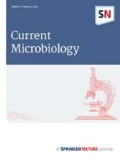Abstract.
Changes in the cell envelopes in response to acidity were studied in two strains of Mesorhizobium loti differing in their tolerance to pH. When the less acid-tolerant strain LL22 was grown at pH 5.5, membrane phosphatidylglycerol decreased and phosphatidylcholine increased, compared with cells grown at pH 7.0. On the other hand, when the more acid-tolerant strain LL56 was grown at pH 5.5, phosphatidylglycerol, phosphatidylethanolamine, and lysophospholipid decreased 25%, 39%, and 51% respectively, while phosphatidyl-N-methylethanolamine and cardiolipin increased 26% and 65% respectively compared with cells grown at pH 7.0. The longest-chain fatty acids (19:0 cy and 20:0) increased in both strains at pH 5.5, while in LL56 these fatty acids increased still further at pH 4.0. Variations in other wall and membrane properties such as cell hydrophobicity, lypopolysaccharides, and protein composition of the outer membrane in relation to acid pH are also discussed.
Similar content being viewed by others
Author information
Authors and Affiliations
Additional information
Received: 22 December 1998 / Accepted: 2 February 1999
Rights and permissions
About this article
Cite this article
Correa, O., Rivas, E. & Barneix, A. Cellular Envelopes and Tolerance to Acid pH in Mesorhizobium loti . Curr Microbiol 38, 329–334 (1999). https://doi.org/10.1007/PL00006812
Issue Date:
DOI: https://doi.org/10.1007/PL00006812




